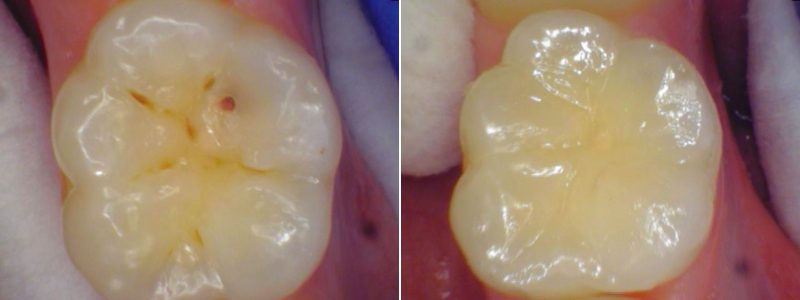Do you have a dental injury? Repair your smile with teeth bonding treatment at Oxford Family Dentistry in Oxford, PA. As a cosmetic dental treatment, dental bonding can be used to cover areas of tooth discoloration or damage. Addressing dental injuries can also improve the function of the bite. Already chipped or cracked teeth can create an unstable, crooked bite. These teeth can also be damaged from continual use over time.
Dr. Stefan Speck works with his patients to customize their dental bonding treatment to their smiles. He helps create a seamless cosmetic restoration that blends in with the form and color of the natural tooth.

Benefits of Tooth Bonding
Dental bonding treatment may be used to:
- Repair chips and cracks in teeth
- Close small tooth gaps
- Reshape misshapen teeth
- Cover intrinsic tooth discoloration
- Correct minor tooth misalignment
Contact Oxford Family Dentistry if you have cosmetic concerns that impact the look and function of your smile. Our talented team of dental professionals will help find the right treatment customized to your specific needs.
Dental Bonding Treatment
Dr. Speck prepares teeth for dental bonding treatment by etching away a small portion of the tooth enamel. This does not damage the enamel. It creates the proper surface for the bonding material. Then, Dr. Speck sculpts and molds biocompatible bonding material to the damaged or discolored tooth. Once the bonding material is the correct size, shape, and hue, he cures it to the tooth using a special light. Finally, he polishes the bonded tooth for a natural luster.
Immediately following bonding treatment, patients should stay away from hard and sticky foods as this can damage the bonding material. Patients should also refrain from drinking tea, coffee, and soda as this can stain the bonded teeth. Bonded teeth can be brushed gently just like natural teeth to ensure that they stay bright and clean.

Bonding Before & After
Teeth Bonding FAQs
How long does teeth bonding last?
This depends on your oral hygiene habits. People with good oral habits can expect their dental bonding to last longer. Typically it will be about three to ten years before you have to replace it or have your dentist touch it up.
Will other people be able to tell that my tooth was bonded?
In most cases, no. If your dentist does a good job sculpting the bonding material into a natural shape, then it will blend in. Also, it has to be properly colored matched.
Is dental bonding similar to dental veneers?
They are similar in a sense that they can cover up any blemishes on your teeth. However, they are two completely different treatments. A dental veneer is a thin shell that is bonded to the front part of your tooth. Dental bonding is a putty like material that your dentist will need to mold into the proper shape by hand.
Is dental bonding affordable?
Teeth bonding is a very affordable cosmetic and restorative dentistry treatment. However, this treatment is not as long lasting or durable as some other treatments. Dental veneers are considered a permanent treatment. They are more durable, will last longer but are more expensive. For this reason, many patients appreciate that dental bonding is an option. You an always switch to dental veneers in the future.
Does teeth bonding require several visits to complete?
Dental bonding only requires one visit to the dentist office. It is a fairly simple and painless procedure.
How do I maintain my dental bonding treatment?
To maintain your dental bonding treatment, all you have to do is practice good oral hygiene. This includes brushing at least twice a day (if not more), flossing once a day especially around the bonded tooth, and visiting your dentist twice a year. Also, to avoid chips and cracks, you should avoid chewing on hard items. This includes your finger nails, pen caps, ice, and hard candy.
Schedule a Dental Appointment
Create a more uniform smile with tooth bonding treatment. Call Oxford Family Dentistry for dental bonding treatment today. You can also request a dental consultation with Dr. Speck on our website. Please let us know if you have any remaining questions or concerns about your options for treatment.
